How often should you clean your washing machine?
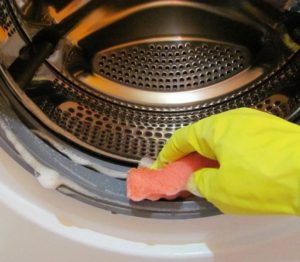 In order for the washing machine to work smoothly, it is necessary to properly care for it. The frequency of cleaning the machine will directly depend on its operating conditions. Let's figure out how often you need to wash the machine from the inside, what experts advise to do after each wash, what products are best to use to treat the washing machine.
In order for the washing machine to work smoothly, it is necessary to properly care for it. The frequency of cleaning the machine will directly depend on its operating conditions. Let's figure out how often you need to wash the machine from the inside, what experts advise to do after each wash, what products are best to use to treat the washing machine.
Machine maintenance requirements
Many housewives are interested in the question of how often to clean the drum of a washing machine, rinse the powder receptacle, inspect the garbage filter, and wipe the cuff of the hatch door. Experts recommend:
- Every time after using the machine (when all the laundry has been washed), wipe the door, drum surface and rubber seal with a dry cloth, and rinse the detergent drawer. Use a damp cloth to remove dust from the body of the washing machine;
- monthly remove and wash the garbage filter, remove dirt from the walls of the hole;
After washing items with high pile, it is advisable to immediately clean the drain filter.
- Once every 3 months, wash the inside of the machine to remove scale from the main components of the unit.
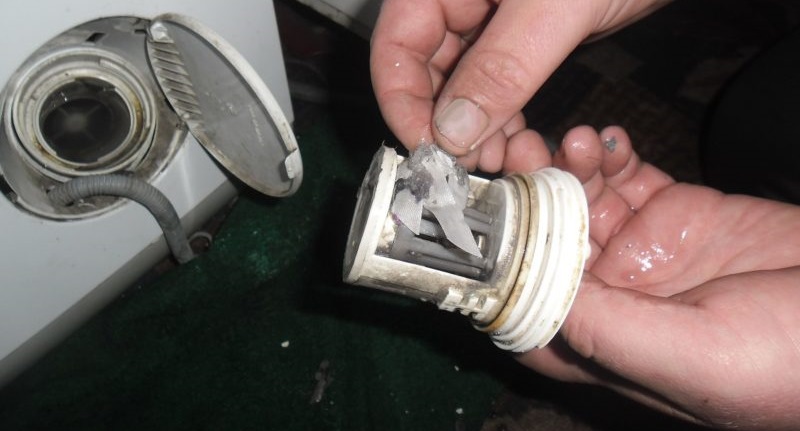
If you clean the equipment on time, the machine will thank you with trouble-free operation. There is nothing difficult about caring for a “home assistant”. The user is required to ventilate the washing machine, wash out the remaining detergents from the cuvette, wipe the drum and cuff dry, and deal with scale in a timely manner.
Experts prohibit
You need to clean the machine correctly. There are several prohibitions that experts constantly warn housewives about. What not to do when caring for your washing machine:
- wash equipment without unplugging the power cord from the outlet;
- use a spray bottle or shower head when cleaning equipment;
- use cleaning products not intended for vending machines;
- allow the electrical components of the washing machine to get wet, in particular the motor;
- remove scale from the heating element with sandpaper. Although some users still resort to this method;
- use aggressive compounds, for example, solvents, to treat machine parts.
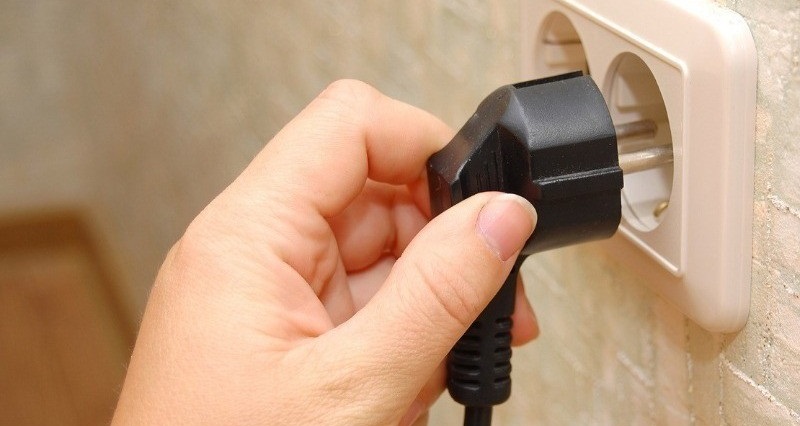
If you clean a washing machine connected to the network, there is a high risk of getting an electric shock. Using aggressive means to process machine elements can cause serious damage to the equipment. To ensure that washing machine care is effective and safe, it is important to follow the recommendations of specialists.
The washing machine stinks
An unpleasant odor is a fairly common problem faced by users who do not take care of their washing equipment. The main reason for the disgusting smell from the machine – bacteria, mold and microbes that settle inside equipment in a humid environment favorable to them.
To eliminate the nasty odor, you need to figure out where the dirt accumulates and clean that place.
Let's figure out what could be causing the foul odor from the washing machine.
- The dispenser is one of the first elements to check. Detergents used during washing are not completely washed out of the cuvette; powder granules and gel residues stick to the walls of the dispenser. So, gradually accumulating, they become a real “home” for bacteria and microbes, and mold appears in the tray. Therefore, it is necessary to clean the powder receptacle in a timely manner to prevent the proliferation of harmful microorganisms.
- The rubber seal is another “shelter” for bacteria.After washing, water often remains in the cuff; lint and small debris get clogged there. If you do not clean this “pocket” of the washing machine for a long time, the accumulated slurry will cause the formation of fungus and mold. It is important to wipe the sealing ring dry and leave the hatch open to ventilate the machine.
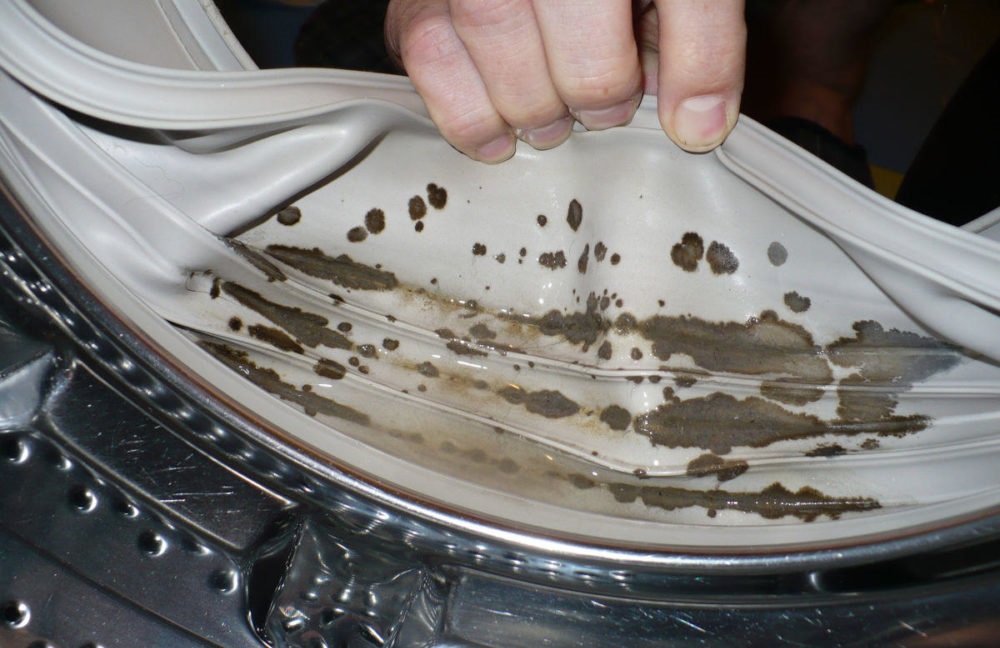
- The garbage filter collects all the debris that gets into the machine. It is not surprising that it is often the filter element that causes the unpleasant odor. Therefore, to avoid the stench, you should periodically empty the trash can.
- The drain hose can also cause your washer to smell. Dirt, debris, and mucus accumulate in the corrugation. Flushing the hose or completely replacing it will help solve the problem.
- The heating element is more susceptible to scale attack than other elements. An army of microbes settles in limescale. Timely cleaning of the heater will save you from the disgusting aroma.
- An unbearable odor can be caused by an improperly installed drain hose. If the hose is connected incorrectly, for example, at an insufficient height from the floor level, then wastewater and “odors” from the sewer will easily penetrate into the automatic machine.
When none of the above reasons are true, consider perhaps putting dirty clothes not in a special laundry basket, but directly in the washer tub, and waiting for the wash load to accumulate. Also, the cause of the stench can be clean, wet clothes that are forgotten in the drum for a long time and begin to “rot.”
To remove the nasty smell, you can use special means:
- Cillit Bang, in addition to the unpleasant aroma, will help cope with scale, mold, and dirt deposits;
- Domestos is a fairly strong composition that effectively fights pollution.The product can clean both the powder receptacle and the drain hose, and remove scale. The chemical contains aggressive components, so it is important to use it carefully and not exceed the recommended dosage;
- Comet-gel will help remove mold, mildew, and quickly and easily deal with dirt.
To avoid a nasty smell from the machine, you need to clean the equipment in a timely manner, be sure to wipe off any remaining water from the sealing ring, drum, and ventilate the washer. If a “fragrance” does appear, find out the cause as soon as possible and eliminate it. Special household chemicals or folk remedies will come to the rescue.
What household chemicals should I use?
There are many special products for caring for automatic machines. They make keeping clean even easier. However, along with advantages, such as effective control of plaque and mold, chemicals have a number of disadvantages. They are quite aggressive, can cause allergies, damage the rubber parts of the washing machine, and harm human health. When cleaning equipment, it is advisable to abandon household chemicals in favor of improvised and no less effective products.
- Citric acid will help deal with scale and remove dirt deposits. The method of application is simple: pour the lemon into the tray, start the wash with an empty drum and a water temperature of 60°C.
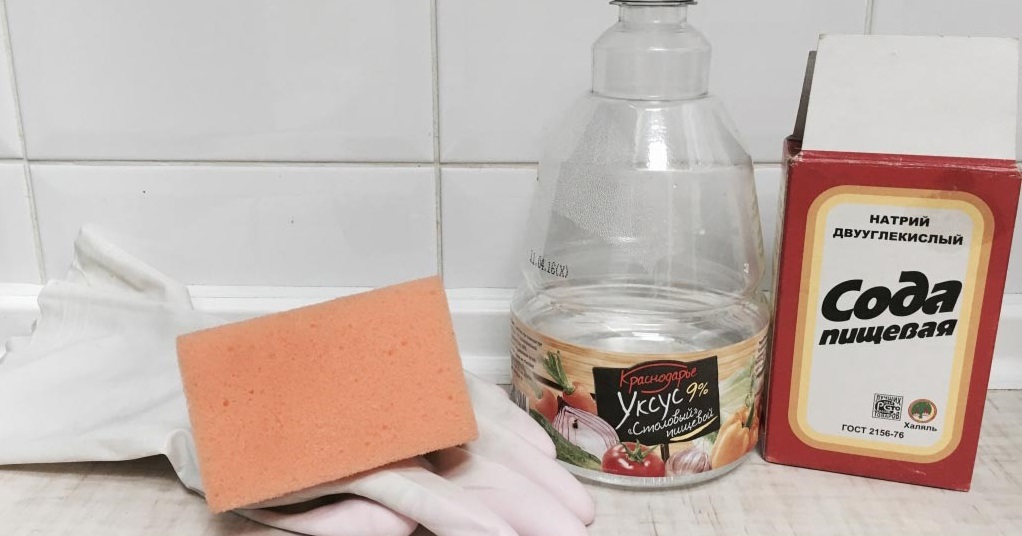
- Vinegar works similarly to lemon powder. You should use the product carefully; due to its aggressiveness, acetic acid can damage rubber and plastic parts in the washing machine. Pour 50 ml of vinegar into the powder receptacle and start a single high-temperature wash.
- Soda plus vinegar. Mix half a glass of baking soda and water, pour the resulting slurry into the powder receptacle.200 ml of nine percent acid must be poured into the drum and the washing mode must be started. The substances will react, and mold and dirt will have no chance of “survival.”
An unusual way to clean a washing machine is with Coca-Cola. Many housewives are surprised at how effectively the drink fights dirt. You need to pour about 5 liters of fizz into the drum and start washing.
Interesting:
Reader comments
- Share your opinion - leave a comment

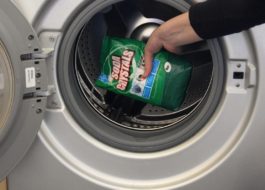

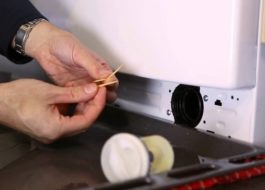

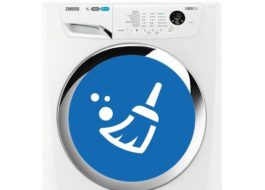
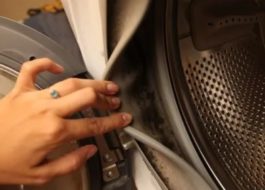


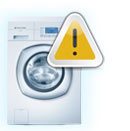
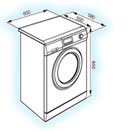


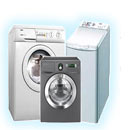
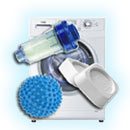


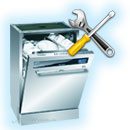
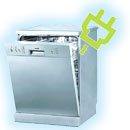


Add a comment